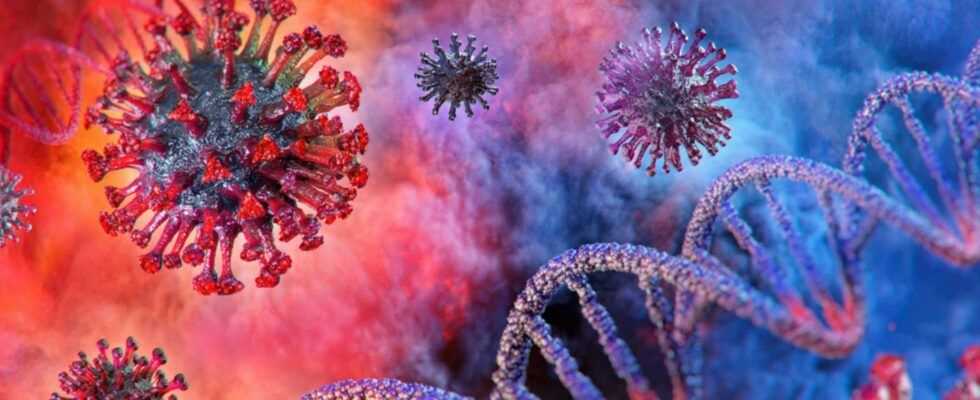Initial studies on possible long-term immunity after infection with the coronavirus were rather sobering. But more recent studies suggest a different conclusion.
Our immune system is a small miracle of nature: if viruses or bacteria trigger a certain disease, the immune system remembers the pathogen for a long time and forms antibodies against it. If the pathogen attacks the body again, our immune system goes up and ensures that we do not fall ill again as seriously as with the first infection.
However, some viruses and bacteria are very changeable, which enables them to trick the immune system over and over again. Flu viruses are one of them – they mutate so often that even if we are vaccinated, we can always get sick.
How does the coronavirus affect the immune system?
But what about the new coronavirus? Initial research suggested that the antibodies are broken down quickly after an infection has been overcome, which would mean that one could be infected again relatively quickly. New studies are now available that indicate that the immune memory could remember the infection for longer and react accordingly. However, it must be noted that some studies have not yet been reviewed by independent experts.
Are you immune for longer after an infection?
In general, it is not just the number of antibodies that determines how the immune system reacts to a new infection with a virus. Instead, the immune response takes place in several steps: First, the so-called unspecific immune defense is used. This activates so-called T cells that destroy pathogens and coordinate further defense measures. Then the so-called B cells start producing antibodies. However, their number and the number of B cells continue to decrease over time after infection.
The new investigations regarding the coronavirus show, however, that the number of B cells does not drop to zero: They are retained in the blood and bone marrow and can therefore be used if the infection occurs again. Deepta Bhattacharya of the University of Arizona, co-author of one of the new studies, says, "The antibodies are decreasing, but they remain in what looks like a stable low point." The researchers therefore assume that the B cells in the bone marrow continue to produce antibodies. "The reaction looks completely permanent."
T cells attack coronaviruses
According to one of the new studies, the activity of the T cells also gives scientists hope that we could be immune for longer after surviving corona infection. For the study, T cells were removed from patients who had been through the coronvirus and isolated. Experiments in the laboratory showed that the T cells divided rapidly and attacked immediately if they came into contact with the coronavirus again. This also applied to the T cells of patients who only had mild disease. The researchers originally feared that the immune system's response would be weaker in this case.
Apart from the fact that some of the new research has not yet been independently verified, but so far they can only be a short-term assessment of immunity after a corona infection. We will have to wait a while for final proof of how long the immune system reacts to the pathogens.
